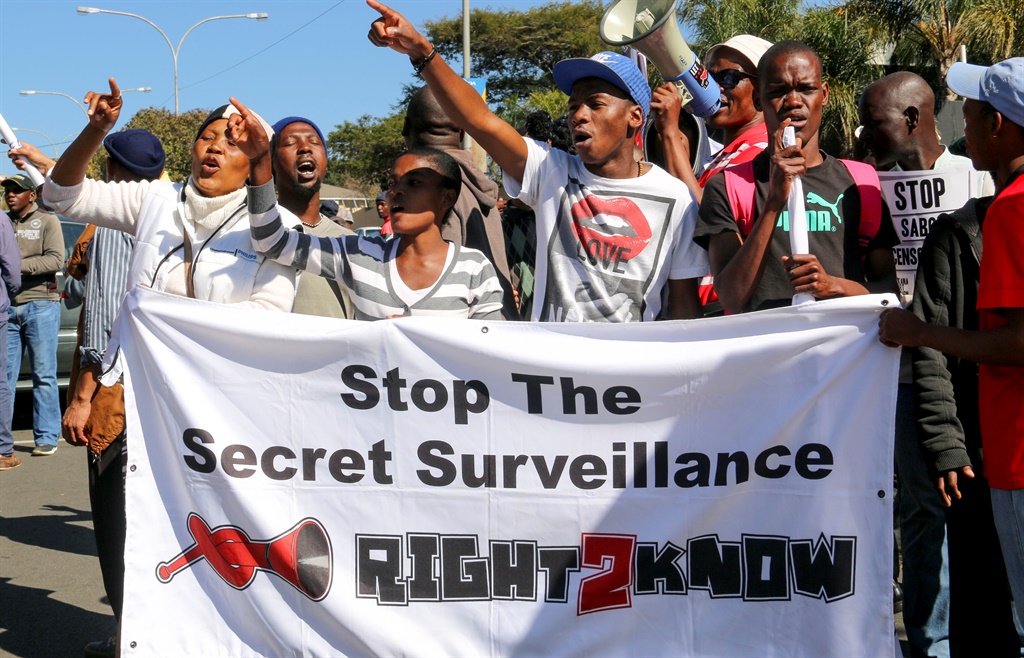Right2Know: The Ultimate Guide To Understanding Your Rights And Accessing Information
Have you ever felt like you're in the dark when it comes to your rights and access to information? Well, you're not alone. In today's world, knowing your rights is more important than ever, and that's where Right2Know comes into play. This powerful movement empowers individuals to demand transparency and accountability from governments and organizations. It's like having a superpower that lets you shine a light on the hidden corners of power and decision-making.
Let's face it, folks. We live in an age where information is power, but not everyone has equal access to it. Governments and corporations sometimes try to keep things under wraps, but Right2Know is here to change that. It's all about ensuring that you, as a citizen, have the right to know what's going on behind closed doors. Whether it's government policies, corporate practices, or environmental impacts, Right2Know gives you the tools to demand answers.
But what exactly does Right2Know mean, and why should you care? Simply put, it's about holding those in power accountable and making sure that decisions affecting your life are made transparently. Whether you're concerned about privacy, environmental justice, or social equity, Right2Know is your ticket to understanding and influencing the world around you. So, buckle up, because we're about to dive deep into this crucial topic.
Read also:Discovering Maplestar Xyz The Ultimate Guide To Unlocking Its Potential
What is Right2Know and Why Should You Care?
Alright, let's break it down. Right2Know is more than just a catchy phrase; it's a fundamental principle that ensures you have access to information that affects your life. Think of it as your golden ticket to knowledge. Governments and organizations are required by law in many countries to provide information upon request, and that's where the magic happens.
Here's the kicker: when you know your rights, you can make informed decisions. It's like having a cheat code for life. Whether you're fighting for environmental justice, advocating for better healthcare, or simply trying to understand government policies, Right2Know gives you the upper hand. So, why wouldn't you want to know more?
History of Right2Know: How It All Began
Let's take a trip down memory lane. The concept of Right2Know didn't just pop up overnight. It has its roots in the freedom of information movements that gained momentum in the mid-20th century. Back in the day, people realized that governments were making decisions without much public input or transparency. So, they decided to do something about it.
Fast forward to today, and Right2Know is a globally recognized principle. Countries around the world have enacted laws that ensure citizens can access information held by public bodies. It's like a global movement that says, "Hey, we deserve to know what's going on!" And guess what? It's working. People are more informed, and governments are more accountable.
Key Milestones in the Right2Know Movement
- 1966: The Freedom of Information Act (FOIA) is passed in the United States, setting a global precedent for transparency.
- 1990s: The movement spreads across Europe, with countries like Sweden and Finland leading the charge.
- 2000s: Right2Know becomes a global phenomenon, with countries in Africa, Asia, and Latin America adopting similar laws.
Right2Know in Action: Real-Life Examples
Okay, so you might be wondering, "What does Right2Know actually look like in real life?" Well, let me tell you, it's pretty powerful stuff. Imagine a community fighting against a polluting factory. With Right2Know, they can request documents that prove the factory's environmental impact. Or think about a whistleblower exposing corruption in a government agency. Right2Know gives them the legal backing to access the information they need.
Here's a fun fact: Right2Know has been used to uncover everything from government surveillance programs to corporate tax evasion schemes. It's like a detective's best friend, helping uncover the truth and hold the powerful accountable. So, whether you're a journalist, activist, or just a curious citizen, Right2Know is your secret weapon.
Read also:Mike Tyson And His Fascination With Tigers A Deep Dive Into His Love For These Majestic Creatures
Case Studies: Right2Know in Action
- Case 1: A group of environmental activists used Right2Know to expose a company dumping toxic waste into a local river, leading to a massive cleanup effort.
- Case 2: A journalist used Right2Know to uncover a government surveillance program, sparking a national debate on privacy rights.
- Case 3: A community used Right2Know to fight against a proposed coal plant, armed with data that showed its negative health impacts.
How to Exercise Your Right2Know
Alright, let's get practical. How do you actually exercise your Right2Know? First things first, you need to know the laws in your country. Most countries have specific procedures for making information requests, so it's important to familiarize yourself with them. Think of it like learning the rules of a game; once you know them, you can play to win.
Here's a step-by-step guide to get you started:
- Identify the information you need.
- Find the relevant public body that holds the information.
- Submit a formal request, following the procedures outlined in your country's laws.
- Be persistent if you face resistance; sometimes it takes a little nudging to get results.
Tips for Making Effective Requests
- Be clear and specific about the information you're requesting.
- Keep a record of all correspondence; it might come in handy later.
- Don't be afraid to appeal if your request is denied; persistence pays off.
Challenges and Limitations of Right2Know
Now, let's talk about the not-so-rosy side of Right2Know. While it's a powerful tool, it's not without its challenges. Governments and organizations sometimes drag their feet when it comes to responding to information requests. They might cite national security concerns or claim that the information is too sensitive to release. It's like trying to get blood from a stone, but don't lose hope just yet.
Here's the deal: while there are limitations, there are also ways to overcome them. You can appeal decisions, seek legal advice, or even go to the media if necessary. Remember, persistence is key. And if all else fails, you can always join forces with like-minded individuals to amplify your voice.
Common Obstacles and How to Overcome Them
- Obstacle 1: Delayed responses. Solution: Follow up regularly and escalate if necessary.
- Obstacle 2: Denial of requests. Solution: Appeal the decision and seek legal advice if needed.
- Obstacle 3: Lack of awareness. Solution: Educate yourself and others about your rights.
The Future of Right2Know
So, where is Right2Know headed in the future? With the rise of digital technologies, the possibilities are endless. Imagine a world where information is instantly accessible to everyone, with minimal barriers. It's like a dream come true for transparency enthusiasts. But with great power comes great responsibility, and that's where the challenge lies.
As we move forward, it's important to ensure that Right2Know laws keep pace with technological advancements. We need to protect privacy while promoting transparency, and that's no easy feat. But with the right mindset and collective effort, we can create a future where Right2Know is a reality for all.
Emerging Trends in Right2Know
- Trend 1: Increased use of digital platforms for information requests.
- Trend 2: Greater emphasis on data privacy and protection.
- Trend 3: Expansion of Right2Know laws to include private sector entities.
Right2Know and Social Justice
Let's talk about the bigger picture. Right2Know isn't just about accessing information; it's about promoting social justice. When people have access to information, they can make informed decisions and hold those in power accountable. It's like giving a voice to the voiceless and leveling the playing field.
Think about it: Right2Know can be a powerful tool for fighting inequality, promoting environmental justice, and ensuring that everyone has a fair shot at life. It's not just about knowing your rights; it's about using them to create a better world for all.
Conclusion: Take Action Today
So, there you have it, folks. Right2Know is more than just a principle; it's a powerful tool for change. Whether you're fighting for environmental justice, advocating for better healthcare, or simply trying to understand government policies, Right2Know gives you the power to make a difference.
Here's what you can do today: educate yourself about your rights, make information requests when necessary, and don't be afraid to speak up. Remember, persistence is key, and together, we can create a more transparent and just society.
So, what are you waiting for? Take action today and join the Right2Know movement. Share this article with your friends, leave a comment, and let's keep the conversation going. Together, we can make a difference!
Table of Contents
- What is Right2Know and Why Should You Care?
- History of Right2Know: How It All Began
- Right2Know in Action: Real-Life Examples
- How to Exercise Your Right2Know
- Challenges and Limitations of Right2Know
- The Future of Right2Know
- Right2Know and Social Justice
- Conclusion: Take Action Today


